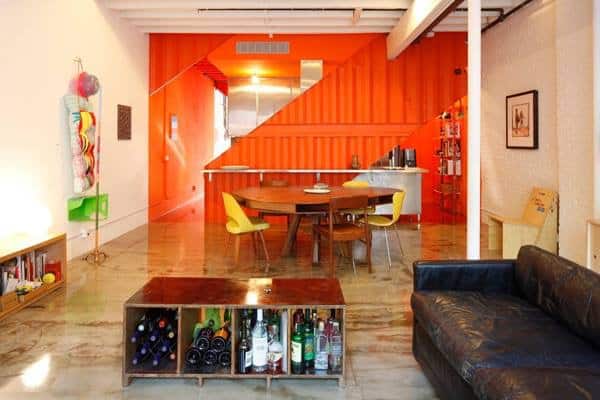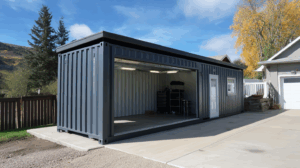Are you tired of traditional office spaces and looking for a new, innovative solution? Then, look no further than the Shipping Container Office. These eco-friendly, cost-effective, and versatile workspaces are quickly gaining popularity among businesses worldwide. Read on to discover the ins and outs of the Shipping Container Office and learn how they can transform your work environment.
Short Summary
Explore the world of shipping container offices, perfect for businesses seeking sustainable solutions without sacrificing efficiency.
Customize your office to meet business needs with design options & features such as size and mobility.
Consider initial investment, construction costs, and ongoing expenses like rent & insurance when budgeting for a shipping container office project!
Exploring Shipping Container Offices
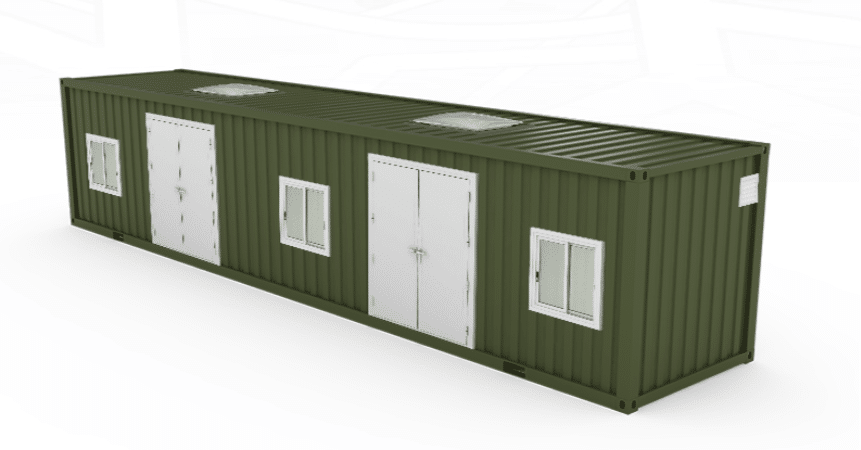
Shipping container offices have taken the world by storm as a cost-effective and eco-friendly alternative to traditional office spaces. With a variety of customization options, these unique workspaces are perfect for businesses seeking sustainable solutions without sacrificing operational efficiency. In addition, repurposing shipping containers reduces the manufacturing of harmful chemicals and also encourages the use of recycled materials, leading to significant savings on utility bills. If you’re looking for a new office with a fast turnaround time, reduced labor costs, and visually appealing aesthetics – shipping container offices might be the pefect fit for you.
But what exactly is a shipping container office, and why should you consider this unconventional approach? Let’s dive deeper into the world of container offices to find out.
What is a Shipping Container Office?
A shipping container office is a modern and flexible workspace created by converting new or used storage containers into functional office spaces. These offices come equipped with insulation, electricity, heating, and plumbing for kitchenettes and restrooms, providing all the necessary amenities for a comfortable work environment.
Shipping container offices are not only customizable and cost-effective, but also sustainable, quick to build, and mobile, making them an excellent option for businesses in need of a temporary or additional workspace.
When it comes to shipping container conditions, you can choose from new containers, good-condition used containers, and used-retired containers, depending on your budget and requirements. Each container type offers varying levels of quality and customization potential.
Why Choose a Shipping Container Office?
There are several advantages to choosing a shipping container office over traditional commercial spaces. For starters, shipping container offices boast a robust design, eco-friendliness, cost-effectiveness, mobility, and resilience against harsh weather conditions. Furthermore, the cost difference is substantial. A 40ft shipping container office with 320 square feet of floor space can cost as little as US$34,000, while commercial office buildings in the New York area average US$993 per square foot for a ground-level office space.
Opting for a customizable shipping container office allows you to tailor the workspace to your business’s specific needs, ensuring maximum productivity and comfort. With the average monthly rent for a shipping container office being around US$585 (excluding delivery and taxes), it’s an affordable and practical solution for businesses of all sizes.
Customizing Your Shipping Container Office
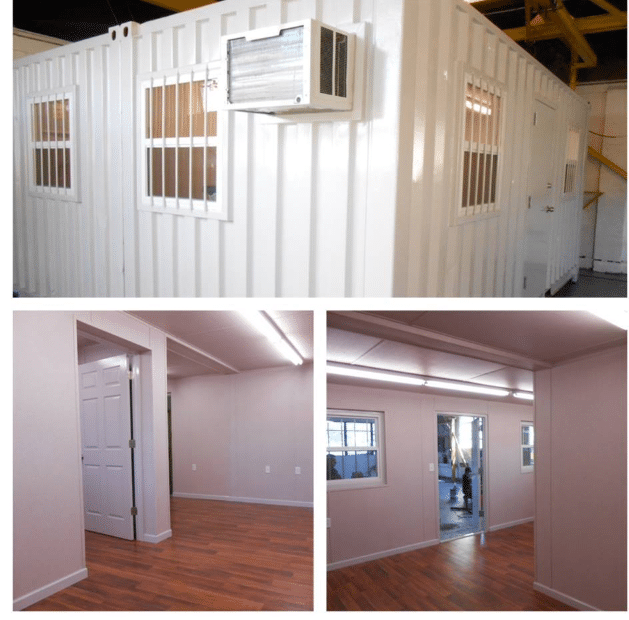
One of the most significant advantages of shipping container offices is the ability to customize them according to your business requirements. From walls, insulation, windows, doors, flooring, and HVAC systems to combining multiple containers for larger spaces, the possibilities are endless.
Let’s explore the various design options and features available for shipping container offices.
Design Options and Features
Shipping container offices offer a wide range of design options and features that can be tailored to suit your business needs. Insulated walls, flooring, windows, doors, desks, and shelving — are just some of the features that can be customized to build an effective workspace. Additionally, a full electrical system for lighting and air conditioning is available for truly comfortable work conditions. Choosing a newer container for your office reduces the effort required to make it ready for use, as these containers are generally in better condition than older, used ones.
The benefits of custom design for a shipping container office are numerous. By tailoring the workspace to your specific requirements, you can ensure maximum productivity and comfort for your employees. Furthermore, custom design allows you to optimize the use of space, making the most of every square foot.
Combining Multiple Containers
If your business requires more space than a single shipping container can provide, fear not. Combining multiple containers is not only possible but also offers numerous advantages. By placing containers side by side, stacking them, or linking them in various configurations, you can create larger, more versatile workspaces that cater to the needs of your growing business.
However, combining multiple containers also presents some challenges. Zoning regulations, obtaining the right permits, and the cost of construction are all factors to consider when planning a multi-container office project.
Comparing Shipping Container Sizes
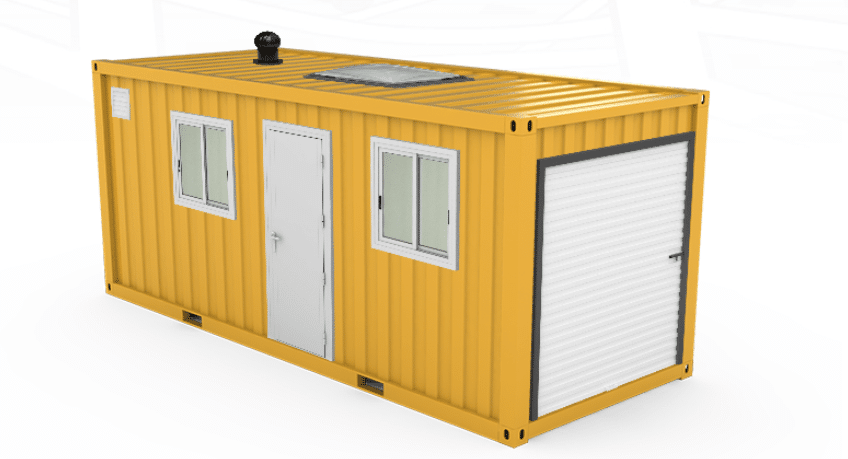
Shipping containers come in various sizes, ranging from 10ft to 40ft, allowing you to choose the perfect fit for your business needs.
But how do you decide which size is right for your business? Let’s delve into the factors to consider when selecting the ideal container size.
Choosing the Right Size for Your Business
To determine the right shipping container size for your business, you must consider factors such as the size of your business, the number of employees, the type of equipment you need to store, and the amount of space required for your operations. The most popular sizes for shipping container offices are 10ft, 20ft, and 40ft, each with its own set of pros and cons.
For instance, a 20ft container is budget-friendly, portable, and easily customizable, but offers limited space and may require additional containers for expansion. On the other hand, a 40ft container provides more space and the possibility of joining multiple containers; however, it is pricier and more challenging to customize.
Ultimately, the right size for your business will depend on your specific requirements and preferences.
The Cost of a Shipping Container Office
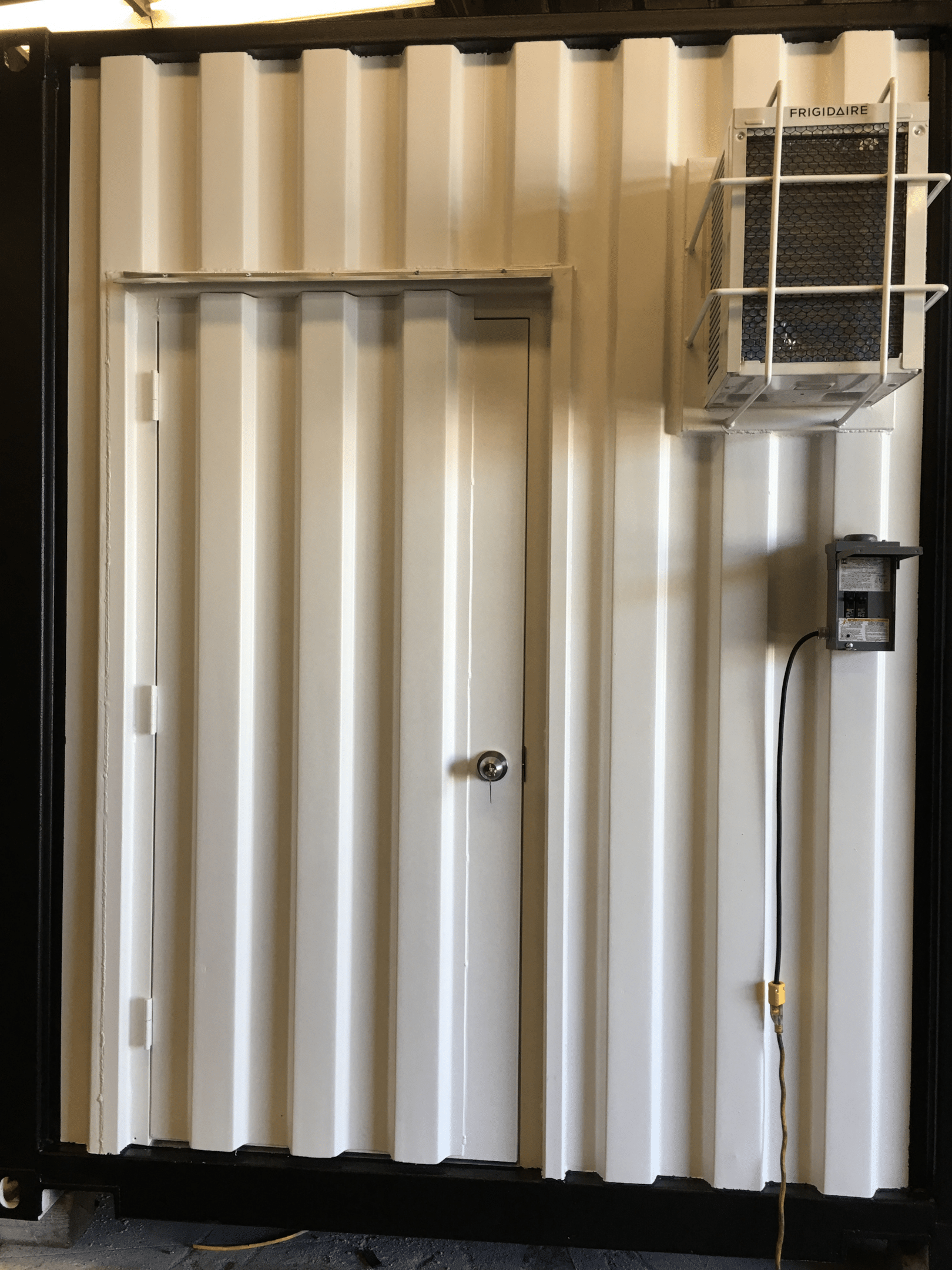
The cost of a shipping container office depends on various factors, including the size, modifications, and whether it’s new or used. To get a clear understanding of the expenses associated with setting up and maintaining a shipping container office, let’s examine the initial investment, construction costs, and ongoing expenses.
Initial Investment and Construction Costs
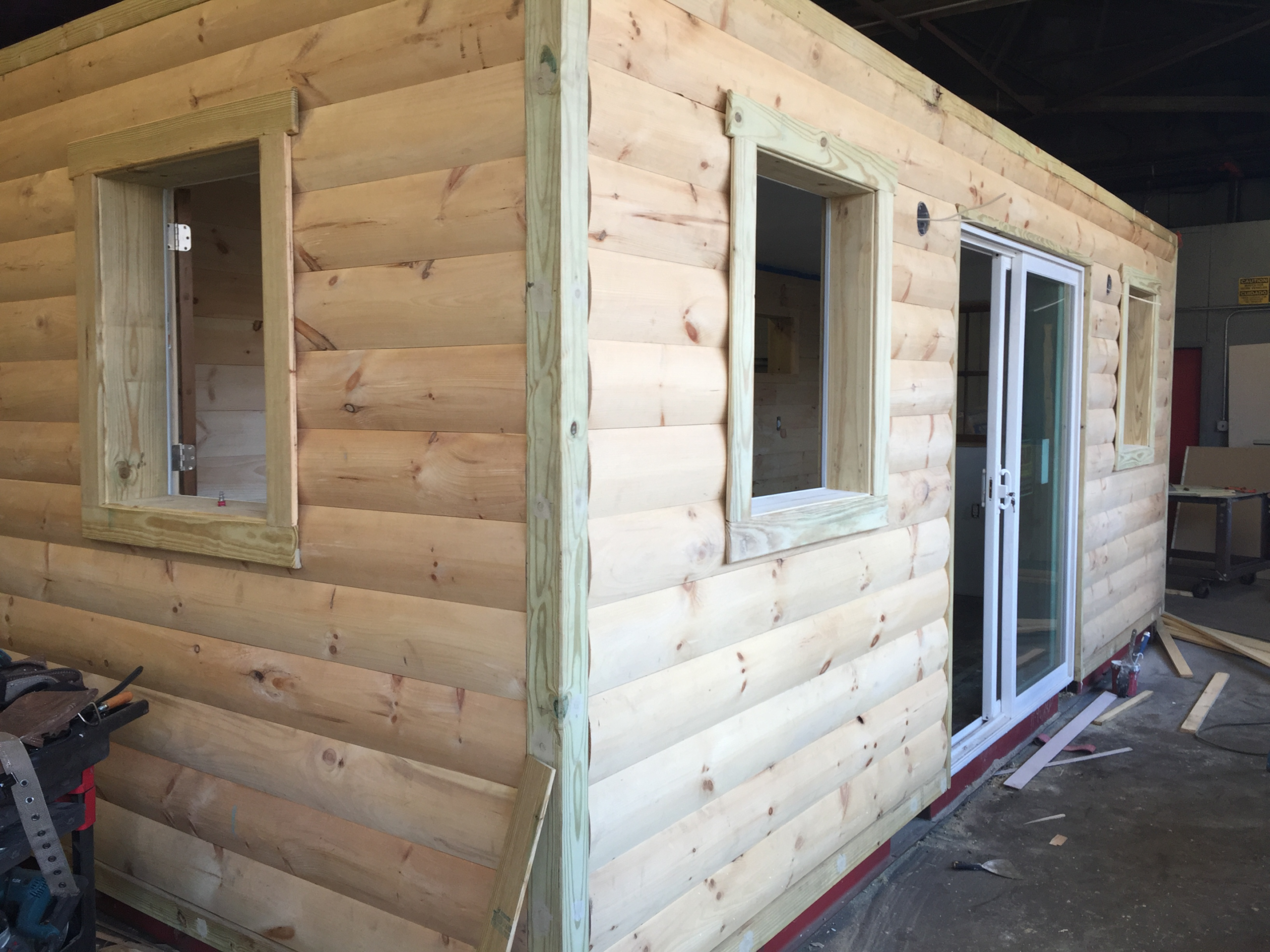
Setting up a shipping container office involves an initial investment that can range from around US$150 to over US$212.5 per square foot, depending on the size and quality of the container. Converting a shipping container into a functional office space usually costs between $28,000 and $42,000, with factors such as container condition, location, and customization requirements affecting the final cost.
Keep in mind that the initial investment can be impacted by factors such as the chosen container size and the extent of modifications required to create a functional workspace. Be sure to carefully consider your needs and budget when planning your shipping container office project.
Ongoing Expenses
Running a shipping container office comes with ongoing expenses that can vary depending on factors such as location, size, and amenities. Typical ongoing expenses include rent or mortgage payments, utilities, maintenance costs, and insurance.
It’s essential to evaluate these ongoing expenses and factor them into your overall budget when considering a shipping container office, ensuring that the financial commitment is sustainable for your business in the long term.
Legal and Permit Considerations
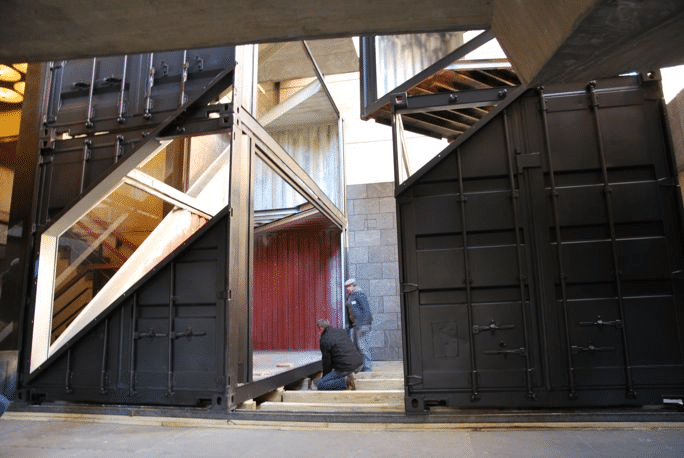
Before embarking on your shipping container office project, it’s crucial to be aware of the legal and permit considerations. Local zoning regulations and permits play a significant role in determining the feasibility of your project.
It’s important to research the local zoning regulations and permits in your area to ensure that your project is compliant. You may need to obtain a permit from your local government before you can begin construction. Additionally, additional information is provided below.
Zoning Regulations
Zoning regulations dictate how a property can be used in a specific area. They can specify whether a property is designated for residential, commercial, institutional, or open space use, as well as regulate lot size, placement, bulk (density), and the height of structures.
To ensure your shipping container office complies with local zoning regulations, it’s best to consult with local and state authorities. Being aware of these regulations and any restrictions or limitations imposed by local authorities is vital to avoid potential legal complications and ensure the smooth execution of your container office project.
Obtaining Necessary Permits
In addition to understanding zoning regulations, it’s essential to obtain the necessary permits for your shipping container office. Depending on your location, you may need to secure a temporary or building permit before construction can begin. When applying for the required permits, ensure that your site plan accurately shows distances to property lines.
To apply for the necessary permits, reach out to your local building department, which can provide guidance on the application process and requirements. Ensuring that all permits and legal requirements are in place will help to avoid potential delays and complications during your shipping container office project.
Real-Life Shipping Container Office Projects
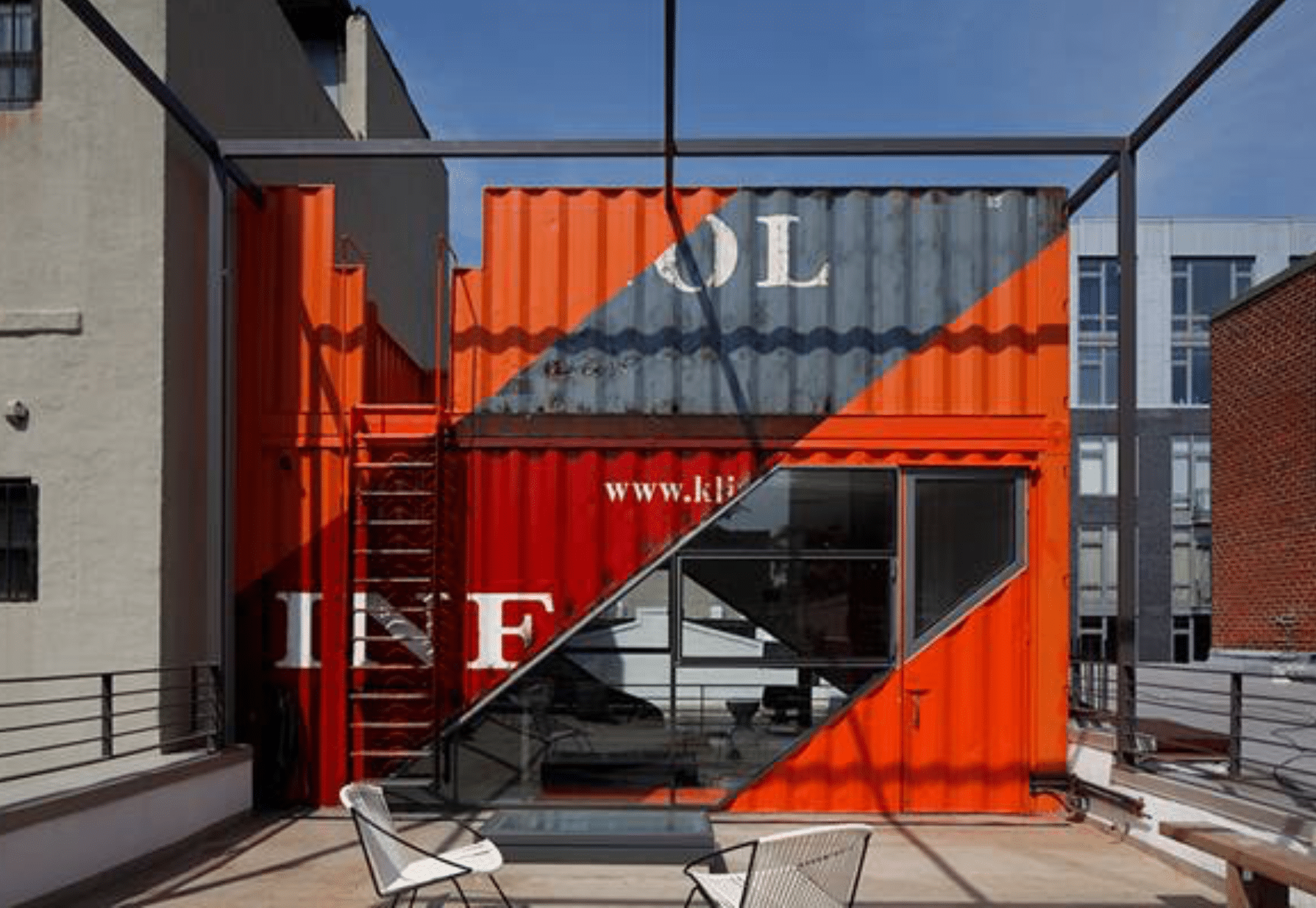
To further illustrate the versatility and practicality of shipping container offices, let’s examine two real-life examples of businesses that have successfully utilized this innovative workspace solution.
These businesses have found that shipping container offices provide a cost-effective, flexible, and secure workspace that can be quickly and easily deployed. They have also discovered that these offices can be customized to meet their specific needs and requirements.
Case Study: The Eco-Friendly Startup
Our first case study features an eco-friendly startup that used shipping container offices to create a sustainable workspace. They combined two 20-foot containers to build a two-story office space. The office was insulated and fitted with custom windows, reducing energy costs and showcasing the eco-friendliness of shipping container offices.
This startup’s shipping container office project demonstrates the adaptability and environmental benefits of using shipping containers as workspaces, providing a functional and sustainable solution for their business needs.
Case Study: The Expanding Business
The second case study involves an expanding business that required a shipping container office to accommodate its rapid growth. Four 20-foot containers and two 40-foot containers were used to construct a two-story office space. The containers were insulated and fitted with energy-efficient windows, resulting in reduced energy costs and a comfortable working environment.
This expanding business’s shipping container office project highlights the flexibility and cost-effectiveness of container offices, providing a scalable and adaptable solution that allowed for swift business growth.
Summary
Shipping container offices offer an innovative and eco-friendly alternative to traditional office spaces, providing businesses with cost-effective, customizable, and flexible workspaces. From design options and features to legal and permit considerations, this guide has covered the essential aspects of shipping container offices. As demonstrated by our real-life case studies, shipping container offices can be an excellent solution for businesses of all sizes and industries. Embrace the future of office spaces and consider the possibilities that a shipping container office could offer your business.

